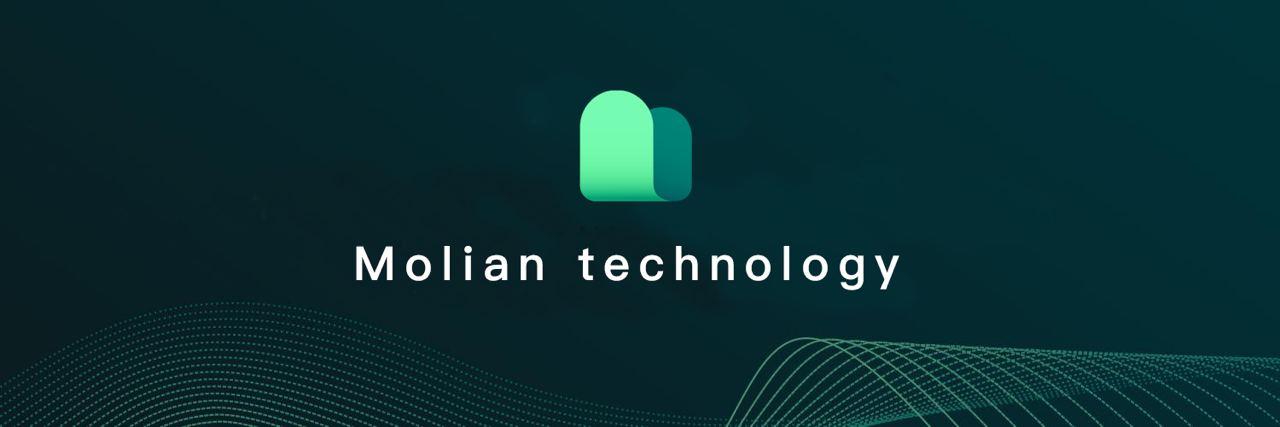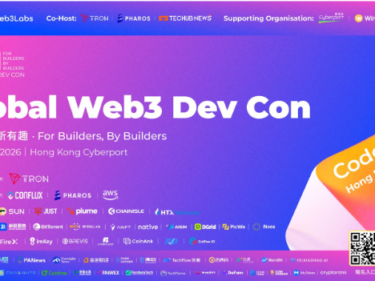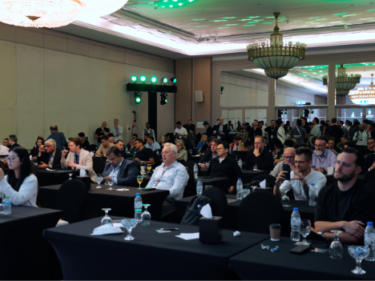Anti-money Laundering Standards Seminar in Beijing

A seminar on the application of anti-money laundering standards in the blockchain industry was held to jointly build industry self-regulatory organizations
Author Chang Tao, Feng Ming Editor Yin Yue
On the afternoon of September 22, 2020, the blockchain industry application anti-money laundering standard seminar was held in Beijing. The conference was hosted by the China Software Industry Association Blockchain Branch, Beijing Lawyers Association Internet Finance Law Committee, the Ministry of Science and Technology major special “Modern Service Trusted Transaction” project team, China Association for the Promotion of International Economic and Technical Cooperation, Shandong Province Blockchain and Digital Economy research organizations, institutions and enterprises such as Economic Research Institute participate.
The meeting conducted in-depth discussions and exchanges on the content of the “General Requirements for Anti-Money Laundering Application in the Blockchain Industry”. At the same time, the companies participating in the drafting of the content carried out relevant reports on the spot, and finally reached the next step to establish the consensus of “Blockchain Industry Application Anti-money Laundering Technology Alliance”.
Cui Zhiru, secretary-general of the Blockchain Branch of the China Software Industry Association, believes that the integrated application of blockchain technology plays an important role in new technological innovation and industrial transformation, and therefore puts forward four major requirements for practitioners in the blockchain industry.
First, we must take the blockchain as an important breakthrough for independent innovation of core technology; second, we must strengthen the research on blockchain standardization, and enhance the international voice and rule-making power; It is necessary to promote the deep integration of blockchain and the real economy; fourth, it is necessary to implement the rule of law into the management of the blockchain, and promote the safe and orderly developing environment of the blockchain. The purpose of this conference is to implement the second requirement: strengthen the research on blockchain standardization, and enhance the international voice and rule-making power;
“The meeting discussed the standards and stipulated the basic anti-money laundering technology security code of conduct for blockchain industry applications or platforms, mainly including blockchain technology guidelines, KYC/AML specifications, blockchain finance, blockchain asset types, and seven aspects of blockchain asset ecology, blockchain detection mechanism, and blockchain big data. It clarified the definition and basic requirements of each technology of the blockchain platform.”
Huang Leping, director of the Internet Finance Law Committee of the Beijing Lawyers Association, believes that the general requirements for the application of blockchain technology to anti-money laundering are the establishment of the scope and content of anti-money laundering and the integration with current standards. The content of the standard should continue to deepen, have a stronger coverage, and a broader scope. The standard specifications should be formulated in accordance with the minimum standards of the central bank or the financial supervision bureau. After the standard is formulated, through sharing and sharing of data, jointly build an anti-money laundering alliance.
Song Ailu, deputy leader of the Blockchain Anti-Money Laundering Standard Drafting Group, introduced:
“As the blockchain technology ecology and digital economy continue to grow, greater transparency, security, and compliance have become the common demands of investors and users around the world. As the blockchain industry accelerates, the financial crime risks of the blockchain finance industry are increased. Among them, new money laundering methods have proliferated from traditional financial methods to the blockchain field, such as the anonymous transfer of money in and out, bitcoin transaction money laundering, and other anonymous digital currency money laundering, decentralized exchange money laundering and other new methods.”
Money laundering and terrorist financing are a malignant tumor in our economic and political life. Money laundering activities help criminals to evade legal sanctions, encourage illegal and criminal activities, disrupt economic and financial order, damage economic organizations and national credibility, and undermine social justice; the international community generally recognizes that it is difficult to prevent, control, and fight against it with the power of one country or organization. Industry self-regulatory organizations must work together to standardize and coordinate domestic and international legislation in order to effectively maintain the international financial order and national economic security, and promote the healthy development of the global economy and society.
Zhen Pengcheng, the representative of Xiaomi Digital Technology, believes that blockchain application is the essential, and financial applications should first consider domestic applications. Xiaomi’s goal in the blockchain industry will be mainly focused on the finance area. Whether it is about credit loan or payment method, blockchain technology will be needed. Businesses like asset management, financial technology are not fixed. The formulation of anti-money laundering standards is conducive to regulating the development of blockchain business.
Zhou Xinjian, a senior researcher at Molian Technology, said: “The standard will formulate information acquisition specifications, including but not limited to the scope of information source acquisition, acquisition method, acquisition process, information category, information form, acquisition channel, and information provider. Information elements; equipped with relevant personnel and technical guarantees to implement information acquisition specifications; conduct security inspections on the use of blockchain information collection tools and technical means.”
Xu Qian, the representative of Ouke Cloud Chain Group, said that when facing the field of anti-money laundering in the blockchain industry, we are trying to extract address tags from blockchain big data. The industry needs professional and efficient tools to better use blockchain big data, and OKLink blockchain browser will provide corresponding services for this.
Finally, Zhang Ran, Director of the Technology Department of the China Software Industry Association, made a concluding speech: “The principle of technology neutrality for blockchain supervision means that blockchain technology should be treated equally with other technologies. The technology enjoys sufficient market competition opportunities to promote the development of this technology. The development of this technology cannot be restricted due to the role of blockchain technology in money laundering and other criminal activities. The traceability of blockchain Node information, the chain structure of the blockchain, and the time stamp mechanism fully guarantee the traceability of data and information on the chain. Through the blockchain browser, you can see the ins and outs of each transaction on the chain. Using the blockchain with this feature, blockchain supervision can and should realize the traceability of node information.”
Participating members unanimously agreed to jointly form the blockchain industry anti-money laundering alliance and bring it to the next step. And make it clear together: Anti-money laundering and anti-terrorist financing work is our common goal and our common responsibility. We hope to continuously expand and deepen the research, standard setting and international exchanges and cooperation in the field of anti-money laundering/counter-terrorism financing in emerging industries, in order to maintain the economic and social security of the Eurasian region and the world, realize regional sustainable development, and build a lasting peace and common prosperity. Make greater contributions to a harmonious world!
Why bother to develop the security standards for blockchain anti-money laundering technology? What fields and characteristics does this standard cover? What changes will the formulation of standards bring to the field of anti-money laundering and the blockchain industry? In the margins of the seminar, CBCNews interviewed Zhou Xinjian, a senior researcher of Molian Technology who participated in the drafting of “Requirements”.
CBCNews: Why should we formulate a blockchain anti-money laundering technical security standard? Is this urgent?
Zhou Xinjian: Money laundering and terrorist financing are these chronic diseases in our economic and political life. With the development of blockchain technology, new money laundering methods have also proliferated from traditional financial methods to the blockchain field, such as the anonymous transfer of money in and out, bitcoin transaction money laundering, and other anonymous digital currency money laundering, decentralized exchange money laundering and other new methods. Therefore, the formulation of blockchain anti-money laundering technical security standards is not only necessary but also urgent.
CBCNews: We have seen that the “General Requirements for Anti-Money Laundering in the Blockchain Industry” is very professional, terminology explanations and conceptual combing took a lot of space.
Zhou Xinjian: The blockchain industry itself is the latest technological innovation of the Internet, and the formulation of standards is to sort out and confirm existing and emerging concepts and terminology. Therefore, it is necessary to ensure professionalism and be detailed and flawless.For example, the key abbreviation AML mentioned in this standard is anti-money laundering, and the code of conduct requires are: virtual asset service providers need to collect sufficient user information and are obliged to perform identity verification to ensure that they can provide targeted customer identity information when needed, And make sure that the service is provided for him only. KYC makes due diligence for customers and requires information: 1. The front and back of the user’s legal ID card and the hand-held photos, including but not limited to ID card, passport, driving license; 2. User residential address information; 3. User contact information, mobile phone number, or email address Address; 4. Customer bank card information; 5. Customer questionnaire survey on relevant service requirements.
CBCNews: Blockchain is a new field of anti-money laundering. What are the characteristics of the “Requirements”?
Zhou Xinjian: The definition of blockchain is a new application mode of computer technology such as distributed data storage, point-to-point transmission, consensus mechanism, and encryption algorithm. The standard divides blockchain assets: For real estate, it generally needs to be converted into digital assets after securitization. For the digitization of securities assets, it is usually to tokenize the securities assets and circulate freely in a limited or unrestricted network space. The price mainly depends on the value of the underlying assets. The blockchain asset ecology is also defined: any valuable asset, whether it is tangible or intangible, physical or digital, it will inevitably appear in the form of digital assets. The transactions between digital assets must be completed through a blockchain-based platform with the help of digital currency. This is the ultimate goal of the value of Internet.
CBCNews: Blockchain is an emerging technology field. How does the formulation of standards promote the development of anti-money laundering?
Zhou Xinjian: Anti-money laundering is a long-term and arduous task. As the Chinese idiom goes, virtue is one foot tall, the devil ten foot, meaning it takes constant vigilance to stave off evil. there are always people who want to exploit technical and regulatory loopholes. The formulation of blockchain anti-money laundering standards will greatly benefit the supervision and crackdown on money laundering in the blockchain field. With the standard, the development of related technologies will be carried out quickly to curb money laundering in the blockchain field. For example, MoChain Technology is developing an anti-money laundering address tracking system with reference to standards, which can support 100-layer tracking and establishment of an address relationship map, and support early warning of risky behaviors. This system is expected to go live in the fourth quarter of this year.



